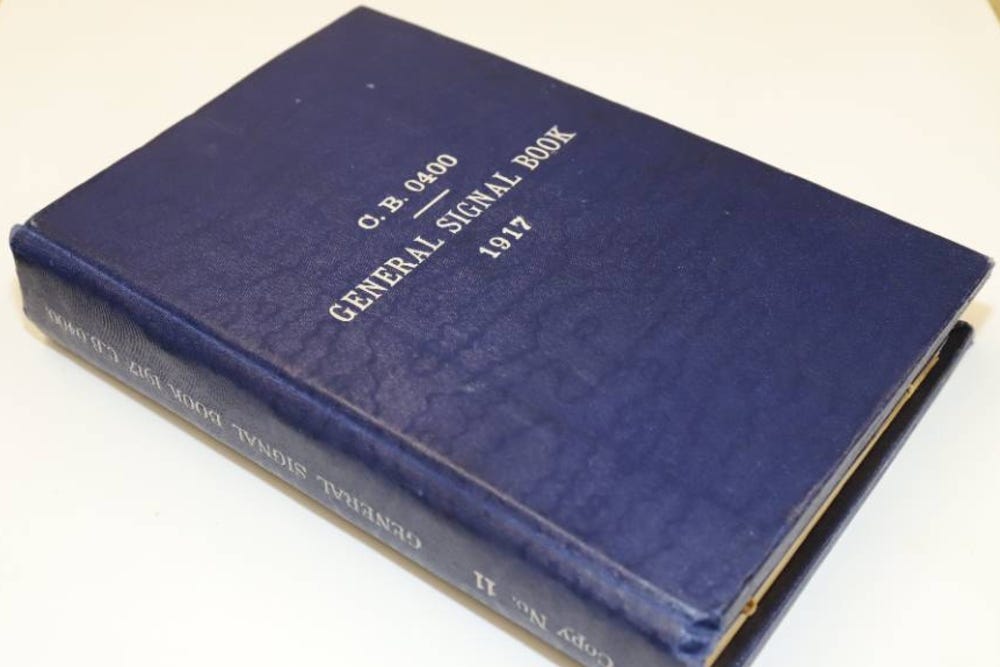Rare WWI naval signal book found in Oxfam bookshop sells for four-figure sum
The General Signals Book, which is filled with confidential signals, was found with a box of donations at the back of Oxfam’s Bath bookshop.

Your support helps us to tell the story
From reproductive rights to climate change to Big Tech, The Independent is on the ground when the story is developing. Whether it's investigating the financials of Elon Musk's pro-Trump PAC or producing our latest documentary, 'The A Word', which shines a light on the American women fighting for reproductive rights, we know how important it is to parse out the facts from the messaging.
At such a critical moment in US history, we need reporters on the ground. Your donation allows us to keep sending journalists to speak to both sides of the story.
The Independent is trusted by Americans across the entire political spectrum. And unlike many other quality news outlets, we choose not to lock Americans out of our reporting and analysis with paywalls. We believe quality journalism should be available to everyone, paid for by those who can afford it.
Your support makes all the difference.A very rare lead-lined naval signal book from the First World War has been bought by a museum after being found in an Oxfam bookshop.
The General Signals Book, which is filled with confidential signals, was found with a box of donations at the back of Oxfam’s Bath bookshop by shop manager Simon Berry.
Noting the book’s connection to the Navy, Mr Berry passed the book onto volunteers, Richard Danns, who is a retired marine engineer, and Stuart Murray, who thoroughly researched the book, before placing it on Oxfam’s online shop.
They quickly realised just how special the book was when several historians started to ring the store.
The National Museum for the Royal Navy in Portsmouth bought the book for an undisclosed four figure sum and has now placed it in its collection.
The existence of the book is quite rare due to the fact signal books were usually ordered to be destroyed, once they were no longer in use.
The book’s unique lead-lining would also have helped the book sink in case of emergency – if the ship was in danger or captured by the enemy – so it could be thrown aboard to avoid falling into the wrong hands.
Mr Berry, 62, said: “I found the book at the end of the year among other donations in the back room.
“I knew the book was something to take note of because it had the lead-lined cover, so it looked quite obscure.
“But I don’t think we realised quite how special it was until we started getting calls from historians telling us how important it was. It felt like you were holding a piece of history in your hands.
“We are so pleased the book has found its way into the right hands with the museum and has helped raise so much money for Oxfam at the same time.
“It’s definitely not every day you handle or sell something of that value.”
Heather Johnson, from the museum, said: “Signal books are quite rare as copies were officially ordered to be destroyed when they went out of use.
“This would have been the duty of the officer in charge of keeping the confidential books, who had to send a certificate of destruction back to the Admiralty.”